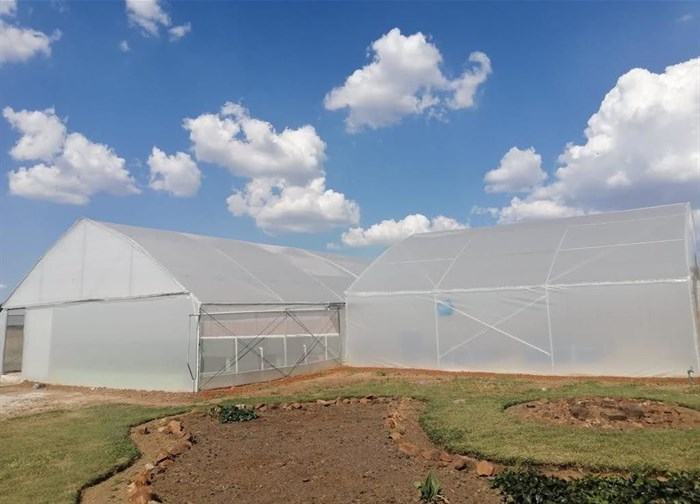
Top stories






More news

Marketing & Media
Warner Bros. was “nice to have” but not at any price, says Netflix

Logistics & Transport
Maersk reroutes sailings around Africa amid Red Sea constraints

















"The Covid-19 pandemic has heightened awareness of the critical need for local food production that can be adapted to local conditions," says Dr Linda Pfeiffer, founder and CEO of Inmed Partnerships for Children.
"Aquaponics is an intensive form of agriculture, combining hydroponics and fish farming in a closed symbiotic system that produces at least 10 times more crops than traditional farming using a tenth of the water, with no chemical fertilizers or pesticides, makes that possible - even where scarce water, soil and space conditions exist.
"Yet more than just providing food security, the Inmed ASE was designed to act as a powerful catalyst in transitioning historically disadvantaged populations, including people with disabilities, women and youth, from subsistence to commercial (market-based) agricultural production using climate-smart aquaponics."
Unathi Sihlahla, South Africa: director, says over the past 10 years the company has developed an innovative, simplified form of aquaponics and a unique implementation model to deliver inclusive and sustainable food production in regions hard hit by climate change.
"This model has been tested on three continents, with operations in more than a dozen locations in South Africa, including in schools and with cooperatives led by women and people with disabilities. "It is ready to scale nationally, and we are very proud to be launching the first global site. The aquaponics social enterprise is definitely the next step in transforming struggling communities into thriving climate-smart hubs of self-reliance," he says.
The hub is a new type of incubator of entrepreneurial agro-enterprises for climate-smart food production. The first hub in Vanderbijlpark houses commercial aquaponics systems that will be used for food production and training. It also will serve as a consolidation centre for the growing number of aquaponics farmers to sell their harvests at higher market rates as well as purchase inputs, such as seedlings and fingerlings, at bulk prices.
"What makes the hub unique," says Sihlahla, "is that it is designed to facilitate the entire value chain of technical and business training, access to financing and links to markets to help small-scale farmers and traditionally marginalised populations overcome the barriers to entry, sustainability and scale. Inmed South Africa is already partnering with restaurant and grocery chains to purchase the aquaponics products of the hub and its network of aquaponics farmers."
Sustainability is key, generating revenue from the sale of crops and fish from its own aquaponics systems as well as earning reimbursements for training and consolidation services. The hub's business model also establishes satellite centres to provide localised training, resources and production to scale the venture nationally and internationally.
"Inmed South Africa has already launched satellite centres run by farming cooperatives, schools and communities in Gauteng, Eastern Cape, Free State and Northern Cape provinces. It is the ideal programme model to complement Mondelēz International’s new Sustainable Futures initiative, which is the first to invest in the hub.
Under its new Sustainable Futures impact investing platform, Mondelēz International seeks to incubate, finance and support self-sustaining ventures that address key challenges in the world. Sustainable Futures seeks to co-invest in projects addressing climate change, as well as making seed investments in social ventures that aim to improve livelihoods and build healthy communities—something Inmed Partnerships for Children has been working toward around the world since 1986.
"We’ve worked in partnership with Mondelēz in South Africa and Brazil for more than a decade to foster meaningful and sustainable change for the people who need it most," comments Pfeiffer. "The Inmed ASE takes this partnership to the next level, allowing us to scale the impact globally."
Sustainable Futures is Mondelēz’s first campaign into impact investing. "It gives us the opportunity to work with others in supporting environmental and social projects that can help drive meaningful, long-term change," says Alisdair Sinclair, Managing Director, Mondelēz South Africa.
"We are excited to be partnering with the Inmed Aquaponics Social Enterprise (ASE) in South Africa, supporting agro-entrepreneurs in climate-smart food production. It’s only by testing and learning new approaches, and by seeking new forms of partnership with NGOs, governments, and social entrepreneurs, that we can unleash the creativity we need to tackle some of the world’s most challenging issues," concludes Sinclair.